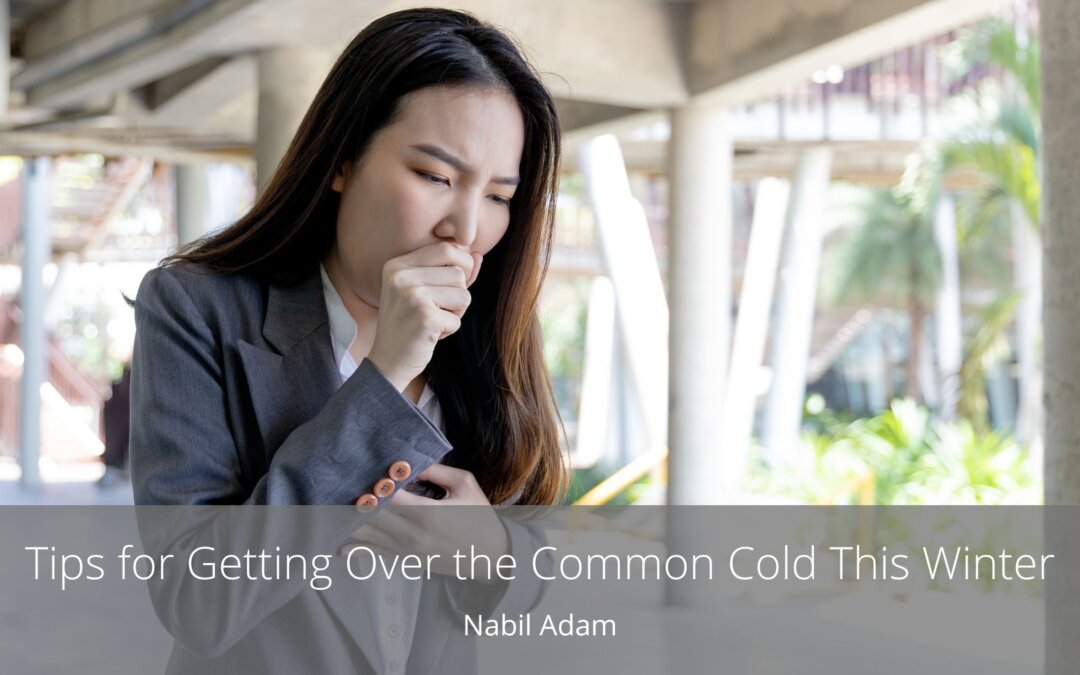The common cold, a frequent winter companion, is often seen as an inevitable seasonal nuisance. While it’s true that there is no cure for the cold, understanding its nature and adopting effective strategies can significantly ease the discomfort and hasten recovery. With the winter chill bringing a spike in cold cases, it’s crucial to be well-informed.
Winter is the peak season for cold outbreaks because rhinoviruses prefer colder, drier environments. The common cold is mostly caused by these viruses. These viruses may spread via contact with contaminated surfaces or droplets expelled from an infected individual while coughing or sneezing. The typical symptoms – runny nose, sore throat, coughing, and sneezing – are the body’s immune response to the virus, not the direct effects of the virus itself. While anyone can catch a cold, factors such as weakened immune systems, crowd exposure, and stress can increase susceptibility. Understanding the nature of the cold is key to effective prevention and treatment. Unlike bacterial infections, colds cannot be treated with antibiotics. It’s a common misconception that cold weather causes the cold; rather, the virus spreads more easily in cold, dry air. Therefore, winter becomes a prime time for its transmission. Recognizing these factors is crucial in adopting the right strategies to prevent and recover from a cold, especially during winter.
Hydration and Nutrition:
Staying adequately hydrated is crucial when battling a cold. Water, herbal teas, and broth help loosen congestion and keep the mucous membrane moist, facilitating the expulsion of mucus. Warm liquids, like tea or chicken soup, can also soothe a sore throat and provide much-needed comfort. In addition to hydration, proper nutrition plays a vital role. Foods rich in Vitamin C boost the immune system. Zinc, found in meat, dairy, and legumes, is another key nutrient that can help shorten the duration of a cold. It’s important to maintain a balanced diet, even when appetite might be reduced. Eating small, nut-dense meals can provide the energy needed for recovery. Moreover, some foods have natural antibacterial and antiviral properties. For instance, garlic contains compounds that can contribute to immune defense, and honey, particularly in its raw form, can offer relief for a sore throat. Avoiding alcohol and caffeine is also advisable, as they can lead to dehydration.
Rest and Sleep:
One of the best strategies to beat a cold is ensuring you get enough sleep and relaxation. Immune system performance is critically impacted by sleep. Our bodies create cytokines, a protein that controls the immune system and aids in the fight against infection while we sleep. The body’s defense against cold viruses is weakened by sleep deprivation because it reduces the synthesis of these proteins and antibodies. Thus, prioritizing sleep and rest is not just about feeling less tired; it’s a fundamental part of the body’s healing process. During a cold, aim for 7-9 hours of quality sleep per night. Creating a comfortable environment can help improve sleep quality. Also, consider taking short naps during the day to compensate for lost sleep at night. It’s important to listen to your body and reduce physical activity as needed. Overexertion can strain the body and divert energy from the immune system. Remember to maintain a slightly elevated head position while resting to help alleviate congestion. In summary, respecting the body’s need for rest and sleep is a key component in recovering from a common cold, especially during demanding winter months.
Environmental and Behavioral Adjustments:
The environment in which we live and our daily behaviors play a significant role in both preventing and recovering from the common cold. Keeping the living space clean and well-ventilated is important. Regularly disinfecting surfaces, especially those frequently touched, like doorknobs and phone screens, can reduce the spread of cold viruses. Humidifiers can add moisture to dry winter air, helping relieve congestion and throat discomfort. Additionally, maintaining a warm, but not overly hot, indoor temperature can provide comfort without drying out the airways. Personal habits are equally important. Frequent hand washing with soap and water is one of the most effective ways to prevent virus transmission. Avoid touching your face, especially the nose, mouth, and eyes, to reduce the risk of transferring the virus from surfaces to your body. If you’re sick, practicing good respiratory etiquette, like coughing into your elbow and using tissues, can help prevent spreading the virus to others. Furthermore, managing stress through relaxation techniques or mild physical activity like walking can boost the immune system. Lastly, avoiding smoking and exposure to secondhand smoke is crucial, as it can aggravate cold symptoms and hinder recovery. Implementing these environmental and behavioral adjustments can significantly aid in overcoming a common cold.
Navigating through the winter months with the looming presence of the common cold requires a multifaceted approach. You can effectively manage and recover from a cold by focusing on hydration and nutrition, ensuring adequate rest and sleep, and making environmental and behavioral adjustments. While these strategies do not guarantee immunity from the virus, they significantly enhance the body’s ability to cope with and recover from infection. It’s important to remember that the common cold, though typically mild, can lead to complications in certain individuals. Thus, paying attention to symptoms and seeking medical advice when necessary, especially for high-risk groups, is crucial. Through hygiene practices and a healthy lifestyle, prevention remains the best defense against the common cold. As we understand more about how our bodies respond to these viruses, we can better equip ourselves to handle them. This winter, take proactive steps to protect yourself and those around you. Stay informed, stay prepared, and remember that taking care of your health benefits you and your community. The common cold may be a part of our lives, but with the right knowledge and practices, we can minimize its impact and enjoy a healthier winter season.

